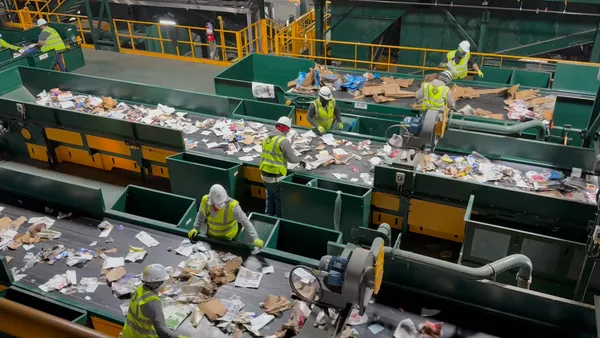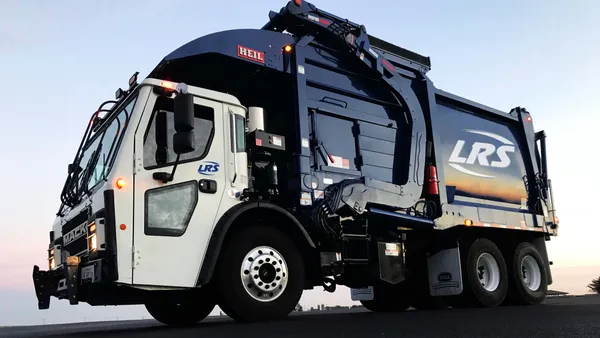Dive Brief:
- Electronic waste recycling on U.S. soil has a new advocate: the national security community.
- Establishing tougher regulations and creating more programs that recycle e-waste in the U.S., instead of in China, could benefit the U.S. defense system by protecting it from receiving counterfeit electronic components, advocates claim. A vast amount of e-waste re-enters the market as legitimate and is passed off as "new" because of e-waste exports.
- According to a report issued by the U.S. Senate Armed Services Committee, these counterfeit parts have made their way through the supply chain and have the potential to create a substantial risk to the agency if faulty parts are used.
Dive Insight:
The U.S. Senate Armed Services Committee reports that in 2009 and 2010 alone, more than one million counterfeit electronic parts were identified in critical defense systems. Second rate parts were found in submarines, aircraft, advanced missile systems, and thermal weapons sights. Consumer goods are also prone to counterfeit parts, including air bags, automatic braking systems in cars, and personal computers.
The Director of the Missile Defense Agency, General Patrick O’Reilly, said, “We do not want a $12 million missile defense interceptor’s reliability compromised by a $2 counterfeit part.”
The federal government and defense industry are actively adopting new policies and practices to stop the flow of counterfeit parts from re-entering the U.S. from China. For instance, the authors of this piece are recommending further action by Congress to prevent the supply of after-market components from being used inadvertently by the government and the general public.












